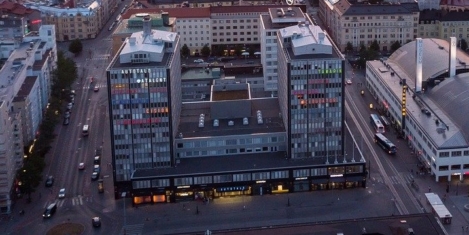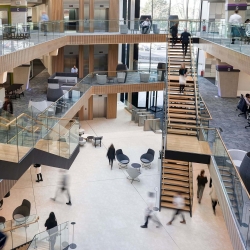To provide the best experiences, we use technologies like cookies to store and/or access device information. Consenting to these technologies will allow us to process data such as browsing behaviour or unique IDs on this site. Not consenting or withdrawing consent, may adversely affect certain features and functions.
The technical storage or access is strictly necessary for the legitimate purpose of enabling the use of a specific service explicitly requested by the subscriber or user, or for the sole purpose of carrying out the transmission of a communication over an electronic communications network.
The technical storage or access is necessary for the legitimate purpose of storing preferences that are not requested by the subscriber or user.
The technical storage or access that is used exclusively for statistical purposes.
The technical storage or access that is used exclusively for anonymous statistical purposes. Without a subpoena, voluntary compliance on the part of your Internet Service Provider, or additional records from a third party, information stored or retrieved for this purpose alone cannot usually be used to identify you.
The technical storage or access is required to create user profiles to send advertising, or to track the user on a website or across several websites for similar marketing purposes.
 EDGE, the developer of a number of groundbreaking, energy-efficient office buildings has reveals its designs for its new London project. The name of the new sustainable development at St Thomas Street on London’s South Bank is EDGE London Bridge. The development aims to make the 255,000 sq ft nia (23,500 sq m) tower featuring 26 floors of commercial office space into London’s most sustainable office tower. (more…)
EDGE, the developer of a number of groundbreaking, energy-efficient office buildings has reveals its designs for its new London project. The name of the new sustainable development at St Thomas Street on London’s South Bank is EDGE London Bridge. The development aims to make the 255,000 sq ft nia (23,500 sq m) tower featuring 26 floors of commercial office space into London’s most sustainable office tower. (more…)


























 A new study by Mercer claims the COVID-19 pandemic and subsequent uncertainty are accelerating changes in the way organisations around the world are working and will continue to work into the future. Particularly in challenging times, employers are focusing on their workforce, specifically fostering healthy lifestyles, supporting financial wellness and providing skills and training as careers change due to AI and technology developments.
A new study by Mercer claims the COVID-19 pandemic and subsequent uncertainty are accelerating changes in the way organisations around the world are working and will continue to work into the future. Particularly in challenging times, employers are focusing on their workforce, specifically fostering healthy lifestyles, supporting financial wellness and providing skills and training as careers change due to AI and technology developments. 








April 22, 2020
An optimistic take on the future of work
by Chris Hood • Comment, Flexible working, Technology, Wellbeing, Workplace design